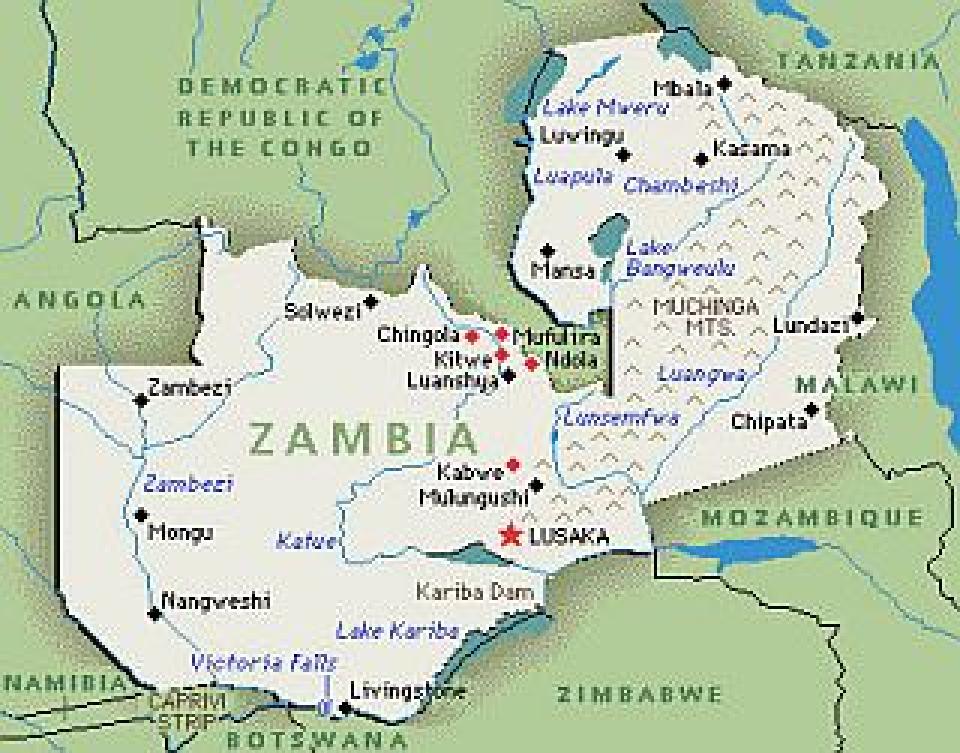
Policy validation
One of the challenges faced by Zambians in the validation workshop was to engender the draft ICT policy document. This is important as it can reduce the digital divide between men and women. Technology is still viewed as a male domain in Zambia and all over Africa.
Participants at the policy validation workshop observed the absence of gender analysis in the draft document. They emphasized the need for civil society, NGO’s, media and government to create awareness and sensitization on gender and ICT in policy. A working group on gender was formed.
The working group advocated for gender mainstreaming into the draft of ICT policy document and wrote a chapter on gender and youth. However, several gender group participants, including myself, suggested that youth and gender should not be grouped together in the policy document because the problems associated with each of them are distinct.
“These are two undeserved groups and appear to have competing needs. Therefore, there is fear of one group being overlooked or receiving less attention,” observes Harriet Muyoyeta Simui a Librarian at the University of Zambia.
Priscilla Jere, Executive Director of One World Africa, a member of the national ICT policy validation workshop gender group, also emphasized the need for gender to be mainstreamed in the entire national ICT policy document.
Gender and ICT Awareness
The Zambian experience of policy formulation in relation to gender and ICT show that there is a lack of awareness and sensitization in the country about the importance of gender and ICTs.
Based on experiences in other social sectors, we cannot hope to address gender imbalances in the benefits gained from the information society if we do not address gender issues at the level of ICT policy making. With a sustained gender analysis, projects are more likely to meet social and development goals.
Already, there is a substantive gender gap in employment patterns in the IT sector, and in the extent to which men and women access the technologies and opportunities it provides.
Many women in Zambia are excluded socially from using ICTs because of poverty and low incomes which do not allow them to participate. Women also lack ICT skills and social power.
“ In particular innovations in technology have overlooked women. It is important for Zambian ICT Policy to cover gender issues because the guidelines will be a reference point in implementation of the policy. If gender issues are left out it means the implementation process will not include aspects of gender too since they are not spelled out in the policy,” explained Harriet. She said that the majority of Zambian women may not be aware of the benefits of ICTs. However the few women who are aware have interest.
Rural and remote populations, where women create majority, are often bypassed as well because of geographical location. Many women here are illiterate and marginalized.
People living with disabilities, especially women, also obtain few advantages from ICTs because they have very slim opportunities. For instance no disabled person was present during the validation workshop to air their own views. The disabled also need new technologies which can help them improve their well-being.
Harriet observes that there is an urgent need for awareness and sensitization campaigns targeting women in Zambia on what benefits can bring ICTs in their daily activities.
“You see many developments happening around ICTs, but they involve mostly men. Women are left out of decision- making bodies. Even in higher learning institutions like the University of Zambia you find that the committees (two) dealing with ICTs are composed of men only. So how do women get interested if they are not involved?” asked Harriet.
No Representation
“During the ICT Policy drafting process, there was very little representation by NGOs/CSOs on the issue of gender and ICTs,” said Harriet. “Apart from the Zambia Association for Research and Development (ZARD), I am not aware of any other NGO or CSO whose agenda incorporate ICTs.”
“Civil Society and NGOs in Zambia have not embraced ICTs and this has made it very difficult for them to advocate for addressing gender and ICT issues especially in policy formulation,” observed Priscilla from One World Africa.
Recently, I attended a discussion organised by the Computer Society of Zambia (CSZ) and was surprised to see that there were only three women compared to over 40 men who had come to listen to the discussion on “Internet in Zambia”.
This discussion meeting showed the clear gender divide that exists between men and women when it comes to issues dealing with technology. The only women who attended the meeting where from academia, media and civil society. These are the women who already have ICT know-how.
The meeting showed that women were under-represented in different ICT fields and the sector as a whole. This trend is evident throughout the different levels of education and training as well as in the employment sector.
Another example is the Zambian ICT Task Force itself, which only has one woman member. “I only know two people on the team, both men. Also, in the consultative ICT policy workshops , which I have attended from the very first one in 2001, I have noticed that the majority of participants have been men,” says Harriet. “Of the women participating in the validation processes, most have been young women who may have found themselves there because their bosses delegated they attend on their behalf,” commented Harriet.
Unpacking “Gender and ICT”
There is little doubt that ICTs will impact every aspect of our lives, now and in the future. The digital divide and hence the development divide existing between men and women in Zambia is largely due to economic factors arising from poverty, lack of resources, illiteracy and low levels of education.
Zambia women are the most impoverished with access to the least resources and with little control over decision making that affects their lives. For this reason, women are at the deepest end of the digital divide.
As articulated in the ICT for social change paper developed by APC WNSP, women’s access to ICTs and control over them is not equal to men’s. When considering the way in which ICTs are allocated between women and men (gendered allocation of ICTs) it is important to look at the difference between access and control.
Women’s access to ICTs is dependent on many factors. Factors such as gender discrimination in jobs and education, social class, illiteracy and geographical location, influence the fact that the great majority of the world’s women have no access to ICTs or to any sort of modern communication system, and possibly will not in their lifetime. It is logical to deduce that as information dynamics accelerate their migration towards the internet, people without access are bound to suffer greater exclusion.
Engendering Policy: Recommendations
The gender digital divide would still exist in a country which does not consider gender seriously in its national ICT policy document. The incorporation of gender analysis into the policy framework is important in order to build an inclusive information society, and to understand the impacts of ICT on women. An emphasis on gender and ICT also must show positive examples of women using ICT
Gender Evaluation Methodology (GEM, www.apcwomen.org/gem) is one of the useful tool to assess gender impacts of ICT initiatives and policies. For example, existing measures to address gender imbalances in the sector need to be reviewed and determine to what extent these interventions challenge or reinforce gender inequalities. Also, there is an urgent need for gender disaggregated telecommunications and ICT statistics and indicators that would allow continuous monitoring of the impact of ICT policies and their implementation.
“Empowerment in terms of training women to acquire ICT skills cannot be over emphasized. Involvement of women in decision-making responsibilities at all levels should be considered urgent. As well as to provide an enabling environment in terms of access to financial resources, legislation (to protect), and other incentives to attract women to be involved in ICT entrepreneurship,” said Harriet.
The Zambian national ICT policy implementation should ensure gender sensitivity, guided by principals of good governance such as rule of law, right of access to information, transparency, fairness, equity and accountability, promotion of culture and indigenous knowledge.
A good policy should also take into account regional and global policies and best practices in transforming the nation into an information society targeting the United Nations Millennium Development Goals (MDGs), World Summit on Information Society (WSIS) Declaration of Principles and Plan of Action, New Partnership for Africa Development (NEPAD) E Schools and infrastructure programmes, Common Markets for Eastern and Southern Africa (COMESA), the Convention on the Elimination of all Forms of Discrimination against Women (CEDAW), and Southern African Development Community (SADC) programmes.
Besides, Zambian women views and concerns should be presented at the diverse international and regional ICT forums.
“There is need to involve women as leaders and decision makers in all the planning process. Government should commit themselves to send delegations that have at least 30 percent women, including gender and ICT experts,” said Priscilla.
The national ICT policy should therefore state the need to promote and facilitate women, as well as men, as actors and creators in the ICT industry.
After the validation workshop we sought further advice from the Association for Progressive Communications Women's Networking Support Programme, who are active globally and regionally in the area of gender and ICT policy, to help inform our submissions to the national ICT task force.
Responses to this post
i wanted to understand why geographic information system is important in our community. because most people do not know why it is important .thankyou.
In reply to why gis is important in our community by prinscilla-quaye (not verified)
why gis is important in our community.
- Add new comment
- 8621 views







Add new comment